Spirulina guards human health energy fortress
Date:2019-06-03Views:1025
Spirulina, a cyanobacteria, is dark green. It is a dark blue filamentous microalgae that grows in alkaline lakes. It is named after the spiral. It is one of the earliest primitive creatures on the earth. One of the most nutritious and balanced species ever discovered. In terms of nutrition, it is more comprehensive and effective than any other animal, plant, cereal and other foods. The nutritional content of 1 gram of spirulina is equivalent to the total nutrient of 1000 grams of vegetables and fruits. Known as "concentrated green super food." What is the role of spirulina in human health and health?
1. Natural nutrition treasure house
Spirulina is rich in vitamins B1, B2, B5, B6, B11, B12, C, E, etc.; the protein rich in spirulina is three times that of fish, four times that of meat, and five times that of eggs. There are many; the chlorophyll content is more than 10 times that of vegetables. In addition, the eight amino acids that cannot be synthesized by humans and animals are abundant in spirulina and much higher than other foods. It is the best natural green health food.
2, restore hematopoietic function
Spirulina has a wide variety of vitamins, each with special physiological functions, and the lack of any of them can cause disease. Chlorophyll A contained in spirulina has its unique hematopoietic and blood-purifying functions. The phycocyanin in spirulina promotes cell formation and is beneficial to bone marrow cells to restore hematopoietic function. In vitro, it can rapidly stimulate red blood cell production and has high activity. Its straight-slit pyrrole can form soluble matter with iron. Promote the rise of human hemoglobin.
3, lipid-lowering pressure reduction function
Spirulina contains high levels of gamma linolenic acid, which can enhance the function of blood lipid metabolism, so that serum total cholesterol concentration and arteriosclerosis index are significantly decreased, thereby regulating blood lipids. Moreover, gamma linolenic acid is also a precursor of prostaglandins, which becomes prostaglandin under the action of oxygenase. Prostaglandins have effects on reproduction, cardiovascular, respiratory, digestive and nervous systems. In addition, Spirulina contains 10 times more potassium than normal vegetables, which can prevent the damage of glomeruli caused by hypertension and control the increase of blood pressure.
4, improve immunity, anti-aging
Spirulina has the function of promoting calcium absorption, improving immunity and preventing metabolic disorders. Always eat spirulina, away from the cold. Spirulina is rich in beta carotene, which is 15 times that of carrots and 40-60 times that of spinach. Taking spirulina protects the eyes, makes the rough skin delicate, and makes the mouth and gastrointestinal ulcers heal quickly. Beta carotene has the function of improving the body's immunity, it can quench free radicals, promote the production of white blood cells and improve their killing ability. The polysaccharide in spirulina has anti-radiation function and indirectly inhibits the proliferation of cancer cells by enhancing the body's immunity. In addition, spirulina polysaccharides can increase the activity of SOD in plasma, reduce the formation of lipid peroxide, and have anti-aging effects.
5, lower cholesterol, protect the stomach
Spirulina has the effect of lowering cholesterol. Its rich liver factor can promote healthy liver cell regeneration, improve blood function, and make systemic metabolism go smoothly. Spirulina also contains factors that promote the production of lactic acid bacteria, which can restore the balance of intestinal flora, rapidly repair the intestinal mucosa, and restore gastrointestinal function. As we all know, spirulina is an alkaline food. It has high plant protein and abundant chlorophyll and β-carotene. It is extremely effective for gastric acid neutralization and gastrointestinal mucosal repair, regeneration and normal secretion. Patients who are more likely to cause stomach problems are particularly suitable.
6, anti-cancer anti-cancer
Spirulina contains a variety of physiologically active substances with anti-cancer and anti-cancer effects, such as phycocyanin, algal polysaccharides, β-carotene, etc. Although they cannot directly kill cancer cells, they act as antioxidants to effectively remove the metabolic process of the body. The free radicals produced in the body stimulate the immune activity of the human body, thereby inhibiting the synthesis of DNA and protein of cancer cells. In addition, spirulina can also improve symptoms such as dizziness, fatigue, anorexia, insomnia, dry mouth, and nausea caused by radiotherapy and chemotherapy, and it is safe, non-toxic, and convenient to eat, making patients more acceptable. A natural nutritious food that combines a variety of effective anti-cancer substances in this way can play a synergistic role in the human body.
7, bodybuilding and diet food
As a diet food, spirulina has long been a trend in Europe and America. The phenyl amino acid in spirulina can affect the appetite of the brain and balance appetite. And the high protein and dry sugar in spirulina can provide the necessary nutrients for life activities, avoiding the hunger brought by other forms of weight loss, suffering from malnutrition, and achieving weight loss under the vitality of life, fully in line with international According to the three requirements set by the WHO: “no anorexia, no diarrhea, no weight loss and no physical strength”, although the effect of spirulina weight loss is slow, it is very ideal and stable, and it is not only harmless and beneficial to the body. Spirulina has abundant elements that promote cell metabolism and plant proteins that enhance physical fitness, r-linolenic acid, SOD, and the like. Long-term use can remove facial senile plaques, chloasma, and self-care for natural weight control.
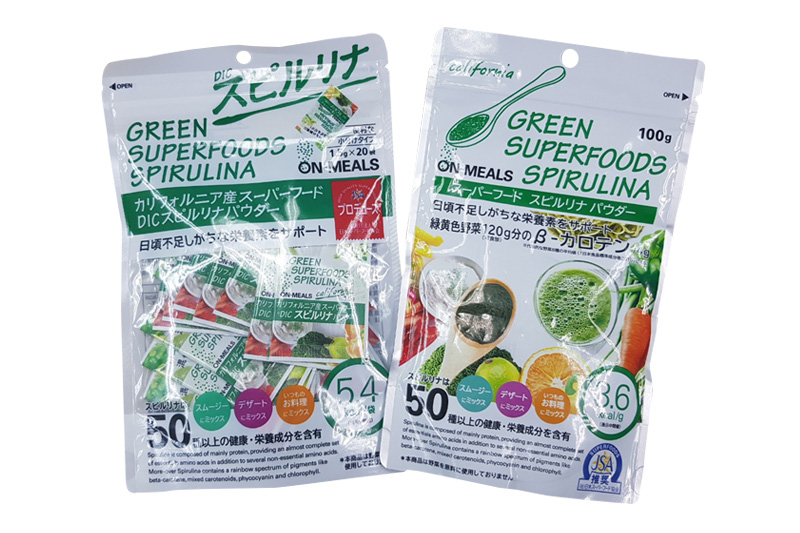 Spirulina
Spirulina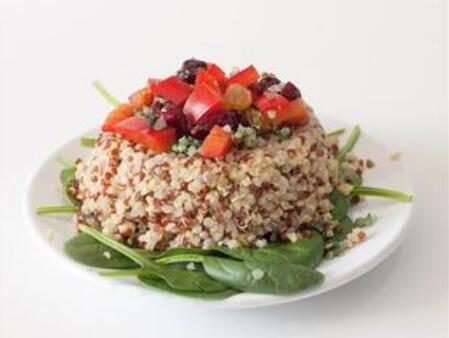 spirulina all in my grains
spirulina all in my grains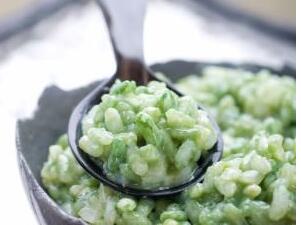 Spirulina's various health benefits
Spirulina's various health benefits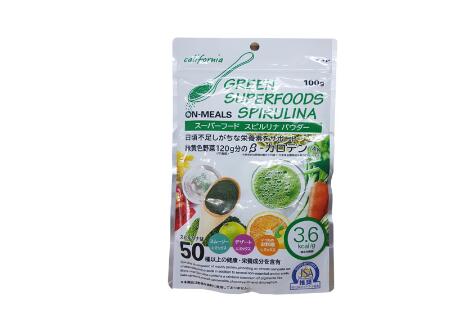 How to eat spirulina powder? Improve gastrointestinal digestion
How to eat spirulina powder? Improve gastrointestinal digestion Spirulina is very effective for beauty care
Spirulina is very effective for beauty care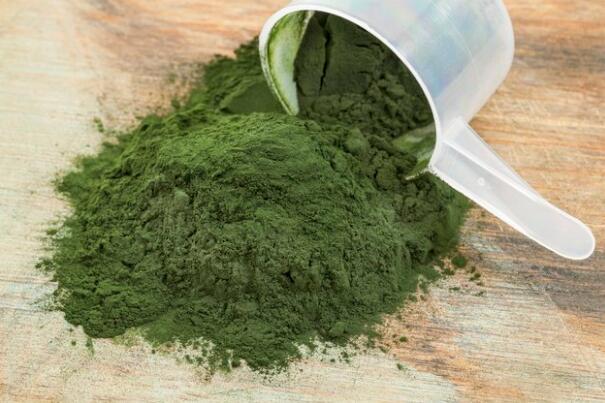 Introduction and morphological characteristics of spirulina
Introduction and morphological characteristics of spirulina
